As writers, we are expected to read a lot. The work of other writers can teach us how to more effectively enthrall our readers and show us how to be better at our craft. Given the limited amount of reading time in our lives, it's important not to waste time consuming material that won't help us progress and develop. Here is a list of the best suggestions for a well-rounded horror author to read.
![]() 1. ""Supernatural Horror in Literature'' by H.P. Lovecraft
1. ""Supernatural Horror in Literature'' by H.P. Lovecraft
Regardless of what you think of H.P. Lovecraft's personal views, his 1927 essay is a thorough historical analysis of early horror fiction. It's in the public domain and available free online. At 30,000 words, it's a long haul, but well worth the read. Lovecraft walks us through the development of the gothic novel, Edgar Allen Poe's influence on the genre, the Weird Tradition in American literature, and masters of the genre during his lifetime. For a more British view on the same topic, try checking out Horror: A Literary History by scholar Xavier Aldana Reyes.
[amazon 0712356088 inline]
![]() 2. The Classics
2. The Classics
You cannot build a house without a solid foundation. Every trope, every cliché, and every monster has an originating story from which they developed and grew over time. If you only read hip new horror novels and short stories from the past few decades, you're limiting yourself and stunting your development. Familiarize yourself with the masters: William Hope Hodgson, Shirley Jackson, Algernon Blackwood, Arthur Machen, Daphne du Maurier. The old guard has a lot to teach us.
[amazon 0143105043 inline]
![]() 3. Craft Essays
3. Craft Essays
Character development, dialogue, grammar, POV—these are the nuts and bolts of what we do. The internet is a vast resource for improving your writing. I'd highly recommend starting with Craig Clevenger's five articles entitled Notes on the Craft. Richard Thomas' Storyville column often focuses specifically on horror and dark fiction with tons of sage advice on writing in the genre. For non-online sources, On Writing Horror: A Handbook by the Horror Writers Association is filled with essays from modern masters on how to write horror effectively.
[amazon B0033ZAVVC inline]
![]() 4. The Modern Classics
4. The Modern Classics
Not every definitive horror novel was written by a dead guy using a gas lamp and a quill pen. There are tons of must-read classics from the past few decades that should be on your reading list as well--Clive Barker, Anne Rice, Stephen King. It's also not enough to say you've seen Rosemary's Baby, The Exorcist and The Shining. Or even modern films like The Ring, Let Me In and The Woman in Black. All these movies are based on successful novels. Step away from the screen and read the damn books! Here's an excellent list of the 50 best horror novels to get you started.
[amazon 0425165582 inline]
![]() 5. Other Genres
5. Other Genres
Repeat after me: "If I only read horror, I will never grow as a horror writer." Make it a point to read outside your comfort zone at least every third book you devour. Thrillers, romance, science fiction, westerns—read them all. Challenge yourself to extract a positive lesson from every book you read, even ones you hate. It could be as simple as writing down an effective metaphor you liked or a powerful image that stuck with you. Non-fiction and poetry can also provide inspiration and lyricism that will add depth to your writing.
[amazon 1984898329 inline]
![]() 6. "On Writing" and "Danse Macabre" by Stephen King
6. "On Writing" and "Danse Macabre" by Stephen King
Stephen King is well-known as the master of horror fiction. Danse Macabre is his 1981 non-fiction analysis of horror fiction and modern society. On Writing: A Memoir of the Craft, published in 2000, is his memoir and advice guide for aspiring writers. Read them both.
[amazon 1439170983 inline]
![]() 7. "Writing 21st Century Fiction" by Donald Maass
7. "Writing 21st Century Fiction" by Donald Maass
I recommend this book to writers more than any other. It is a practical guide to developing your fiction. Each chapter ends with a long list of useful questions to ask yourself when working on your manuscript. Print them off and refer to them whenever you feel stuck.
[amazon 1599634007 inline]
![]() 8. Anatomy and Forensics
8. Anatomy and Forensics
While horror can often be cerebral and understated, it is often about people getting torn to shreds by monsters. You need to know how to accurately describe gore and physical injuries in order to write horror effectively. As your career progresses, you'll find yourself asking questions like how far blood will spray from a severed head or how long it takes for a corpse to decay. Find yourself good reference books or websites for both forensics and anatomy. I write a regular column about these topics and highly recommend Forensics: A Guide for Writers as an excellent go-to guide.
[amazon 1582974748 inline]
![]() 9. Best of Collections
9. Best of Collections
Even if you only want to write novels, annual collections of short horror fiction provide an up-to-date survey of the best in the genre. The Year's Best Dark Fantasy & Horror and Ellen Datlow's Best Horror of the Year should be purchases you make every twelve months. You may not enjoy every story you read, but each one has an important lesson to teach. Ask yourself: Why is this story considered one of the best? What makes it so great? How can I incorporate this type of writing into my own work? Richard Thomas has also written a great column on why these collections are important.
[amazon 151071667X inline]
![]() 10. Your Friends' Work
10. Your Friends' Work
Make it a point to offer to beta-read your friends' work. By reading progressive drafts of other people's work, you learn how to develop and edit your own. In turn, they will return the favour and help edit your work. If you don't have a circle of friends that write horror, check out Litreactor's Writers' Workshop or take an online course to meet some new people. The only thing as satisfying as seeing your work published is seeing your friend's work in print knowing you played a small role in helping them figure it all out.
[amazon B07NSJLNJ2 inline]

About the author
Repo Kempt has worked as a criminal lawyer in the Canadian Arctic for over ten years. He is the author of a book about seal hunting, a member of the Horror Writers Association, and a guest columnist for the Canadian Broadcasting Corporation. He lives on a cricket farm with his wife, Joy and his little dog, Galactus. In his spare time, he looks for an agent for his latest manuscript.
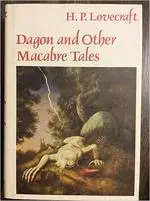 1. ""Supernatural Horror in Literature'' by H.P. Lovecraft
1. ""Supernatural Horror in Literature'' by H.P. Lovecraft
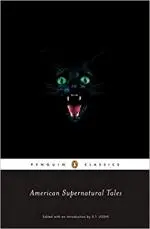 2. The Classics
2. The Classics
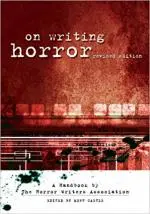 3. Craft Essays
3. Craft Essays
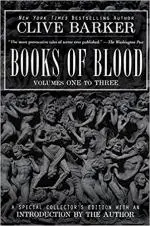 4. The Modern Classics
4. The Modern Classics
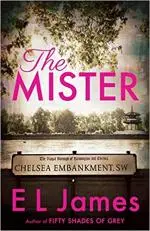 5. Other Genres
5. Other Genres
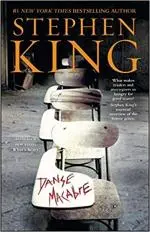 6. "On Writing" and "Danse Macabre" by Stephen King
6. "On Writing" and "Danse Macabre" by Stephen King
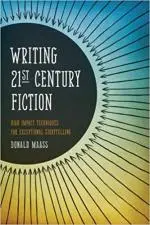 7. "Writing 21st Century Fiction" by Donald Maass
7. "Writing 21st Century Fiction" by Donald Maass
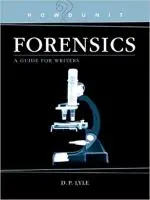 8. Anatomy and Forensics
8. Anatomy and Forensics
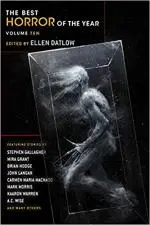 9. Best of Collections
9. Best of Collections
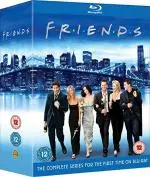 10. Your Friends' Work
10. Your Friends' Work







